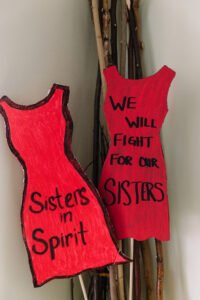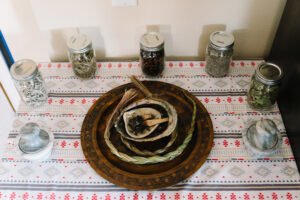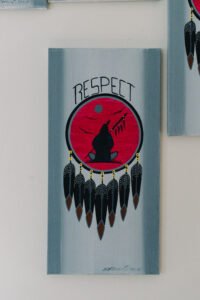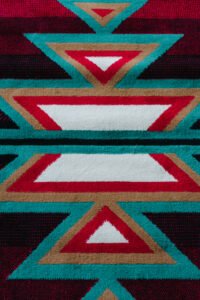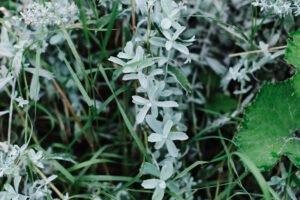Housing Outreach
The housing Outreach program provides services for housing stabilization (referrals, provision of resources, furniture, hygiene products) with the goal of connecting clients to emergency shelters and maintaining permanent housing. This program also visits Aboriginal women and girls in identified neighborhoods that lack culturally specific housing programs and areas considered high-needs. Outreach services can also be delivered at partnering agencies that have Aboriginal women and girls as part of their clientele.
Community Wellness
The Community Wellness program works to provide family violence services, referrals, support and case management to clients to address/respond to existing and emerging health, healing and wellness issues, or violent situations. The priority focus is related to reducing family violence.
Education
The Education Program helps adults in Ontario to develop and apply communication, numeracy, interpersonal and digital skills to achieve their goals. The LBS program serves learners who have goals to successfully transition to employment, postsecondary, apprenticeship, secondary school, and increased independence. The program includes learners who may have a range of barriers to learning.
Investing in Women’s Future
The Investing in Women’s Futures Program, assists Indigenous women in building their economic independence through direct service and referrals pertaining to employment/education/training, developing goals, small business supports and offering one-on-one supports, group workshops, and culturally relevant programming.
Housing
The Housing Program provides housing assistance and support services to clients who need housing or are at-risk of becoming homeless. This program strives to reduce and prevent homelessness through eviction prevention, housing access, and housing retention support services by liaising with external agencies, building community capacity, and advocating for housing opportunities.
Pimaatisiwin
The Pimaatisiwin Program promotes the healthy development of young children (0-6 years) and builds stronger family foundations and seeks to promote the creation of partnerships within Toronto and strengthen community capacity to increase support for vulnerable children and their families. It also provides community-based children’s program which is focused on child health and development activities, parenting skills, nutritional support and collective kitchens, physical activity programs, outreach and home visits.
Family Support
The family support Program support Indigenous women in a culturally rooted, holistic way, assists women in navigating through the complex systems encountered when experiencing violence and involvement in child welfare matters. This program focuses on crisis management and stabilization, awareness and education, planning and goal setting, liaise with service providers and provide conflict resolution support for Indigenous women and their families.
Aboriginal Healthy Babies Healthy Children
The Aboriginal Healthy Babies Healthy Children (AHBHC) Program, which is designed to ensure that all Aboriginal families and their children (prenatal to age six) who need assistance with physical, emotional, mental and social issues have access to effective, consistent early intervention services. AHBHC is mandated to provide the best opportunities for healthy child development through home visiting, service coordination, parenting groups, cultural teachings, traditions and referrals. As well as to address the children at risk to ensure that they have access to services and support that will address their needs. The AHBHC program is voluntary and open to any Aboriginal family that requests the service. Aboriginal families may also access the provincial program via the local public health unit.
Aboriginal Healthy Babies Healthy Children
The Aboriginal Healthy Babies Healthy Children (AHBHC) Program, which is designed to ensure that all Aboriginal families and their children (prenatal to age six) who need assistance with physical, emotional, mental and social issues have access to effective, consistent early intervention services. AHBHC is mandated to provide the best opportunities for healthy child development through home visiting, service coordination, parenting groups, cultural teachings, traditions and referrals. As well as to address the children at risk to ensure that they have access to services and support that will address their needs. The AHBHC program is voluntary and open to any Aboriginal family that requests the service. Aboriginal families may also access the provincial program via the local public health unit.
Trauma Support
The Trauma Support program creates innovative approaches to support survivors of sexual violence, harassment and human trafficking, while building a body of evidence about what works to improve service delivery outcomes.
This program provides more timely and effective supports and assist to build capacity of organizations (community, justice, health, education) to better meet their local needs and pilot evidence-based programs/approaches that demonstrate improved outcomes for survivors of sexual violence, harassment and human trafficking.


